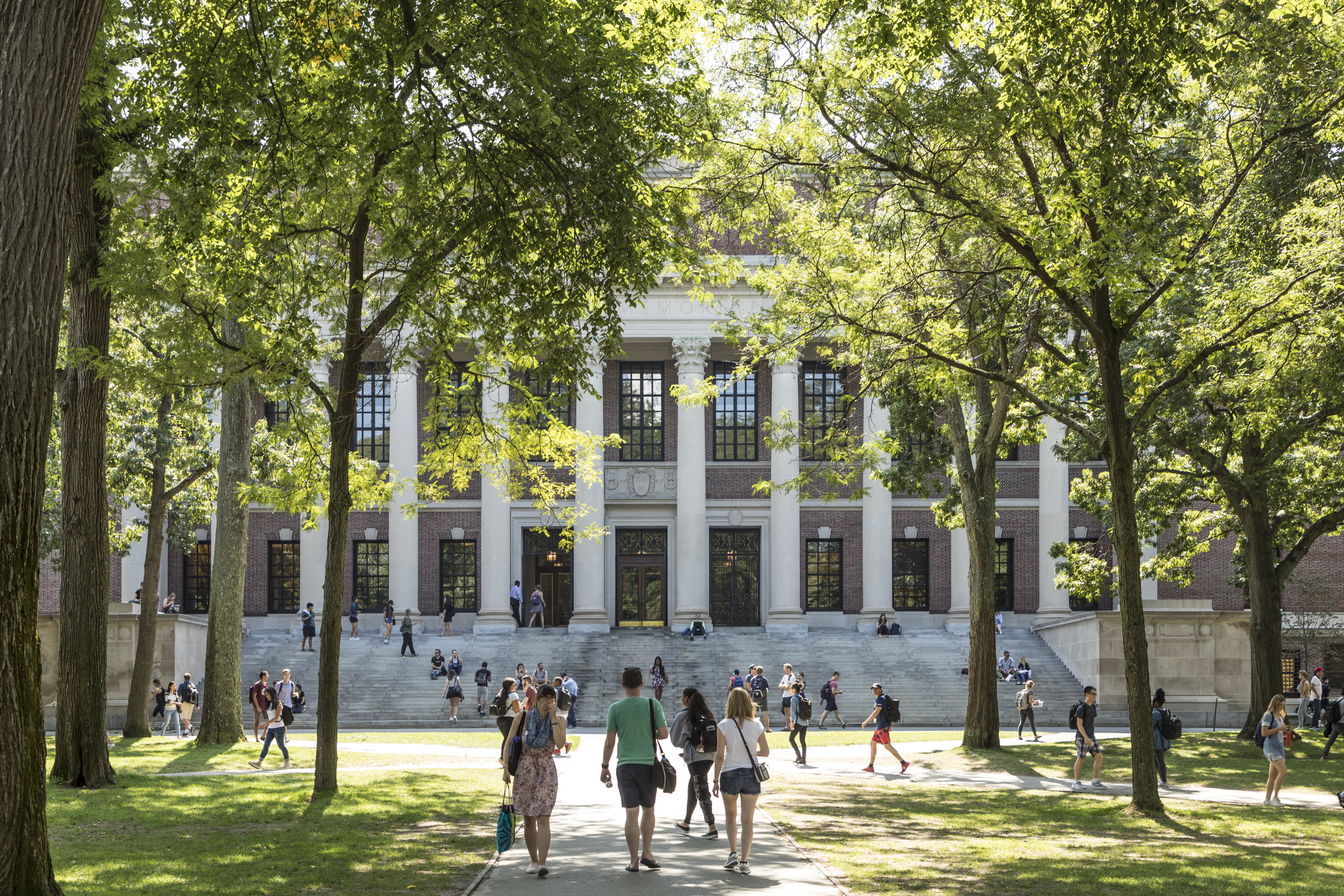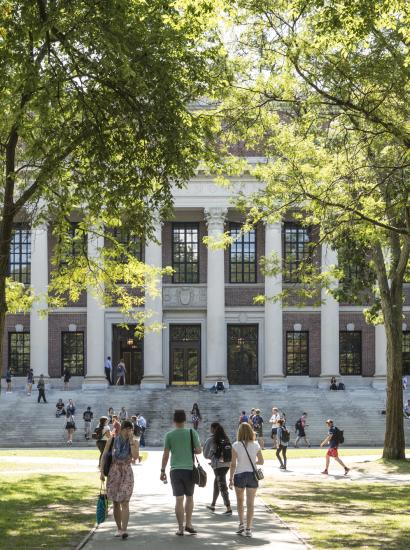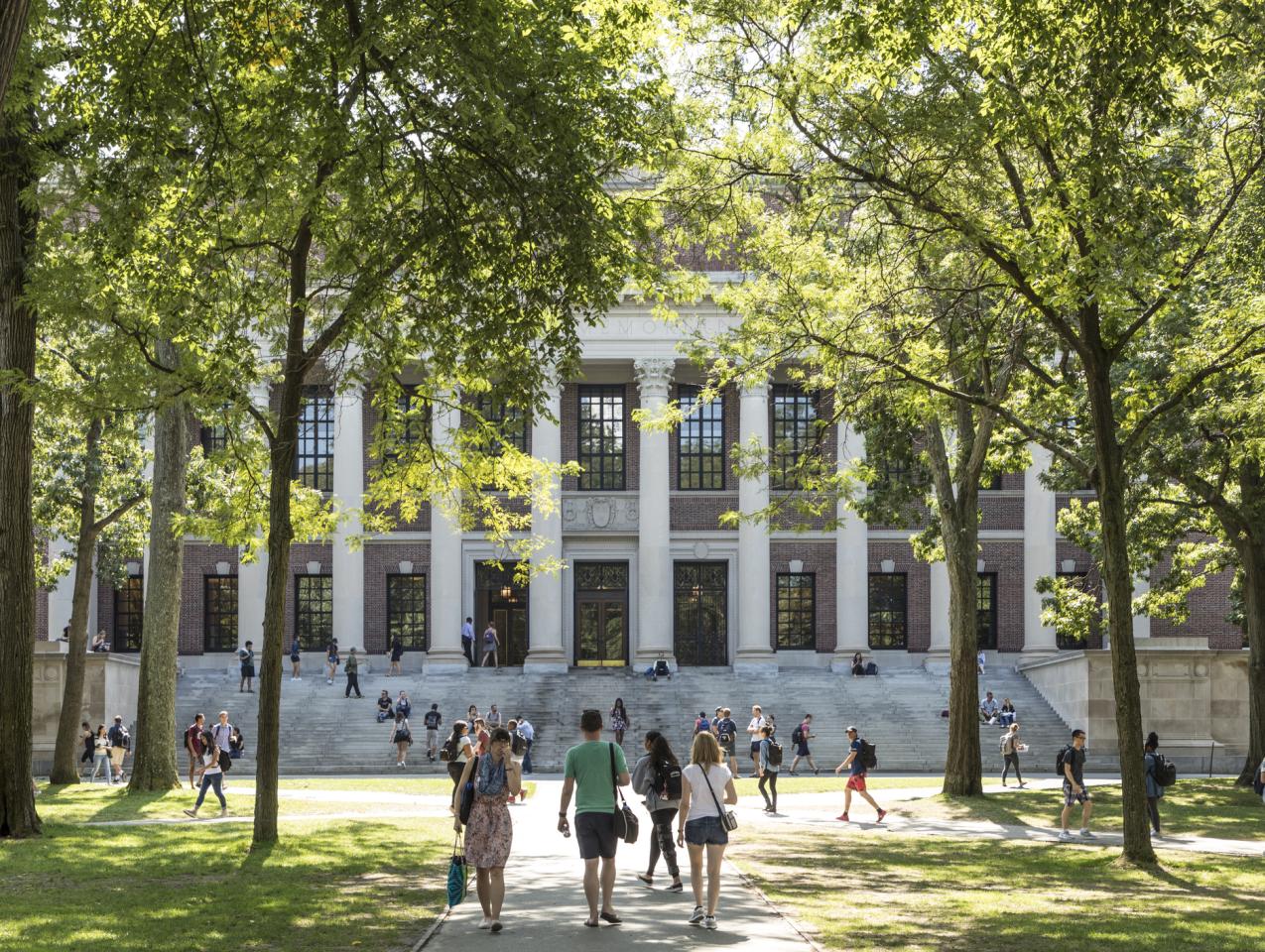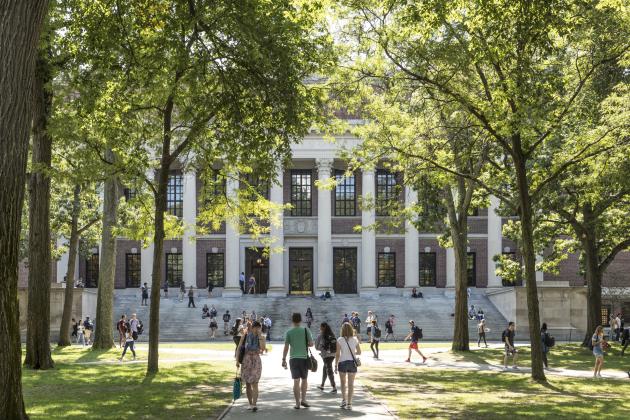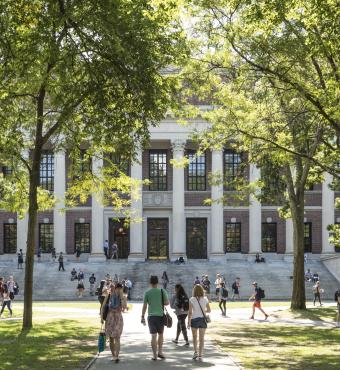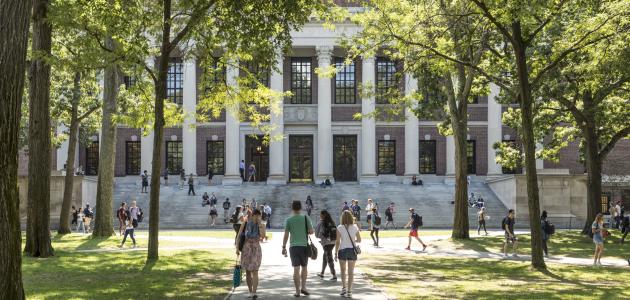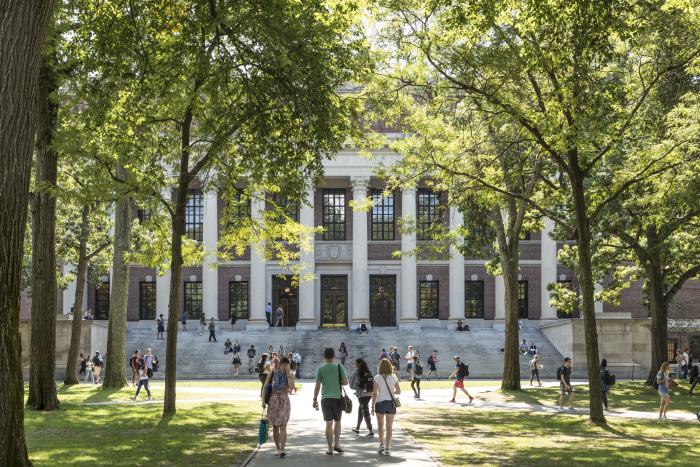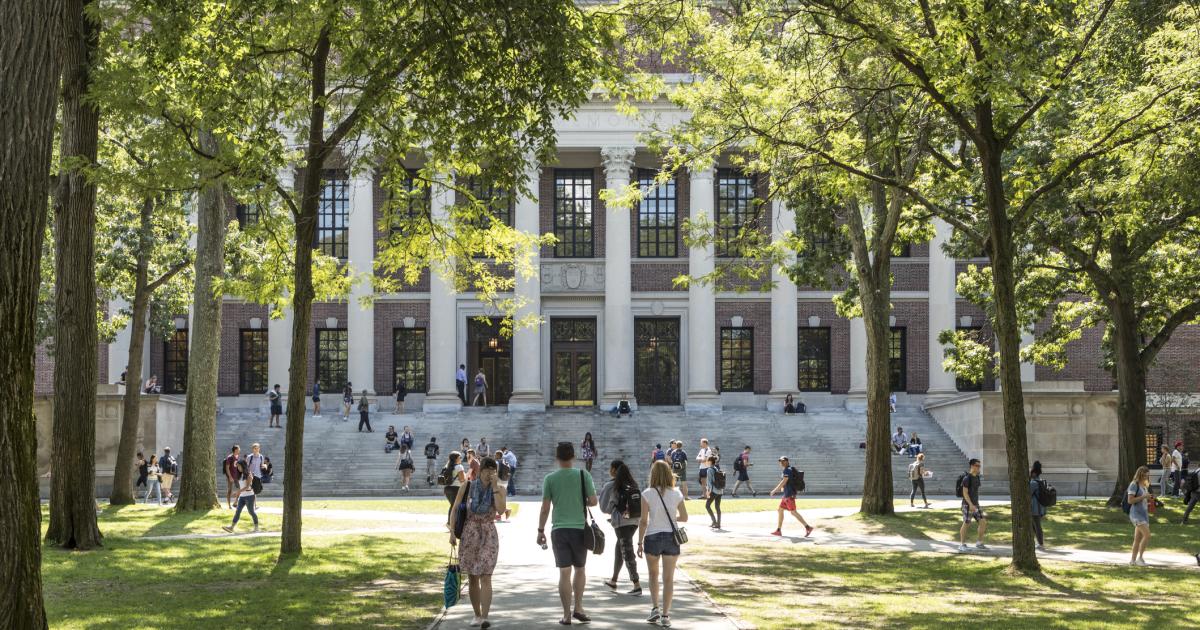In a recent article in the New York Times, Debra Satz and Dan Edelstein—the dean of Stanford University’s School of Humanities and Sciences, and the faculty director of its program in civic, liberal, and global education, respectively—offer a provocative thesis: “By abandoning civics, colleges helped create the culture wars.” The authors lament the decline in the protection of free speech, singling out the disgraceful effort in March by some students at Stanford Law School to silence a speech that Kyle Duncan, a federal judge, was prepared to give to the Federalist Society chapter.
Both authors point to the failure of our centers of learning to develop the “shared intellectual framework” that could help defuse or prevent such incidents, but they offer a dubious remedy: a new (since 2021) program at Stanford called “Civic, Liberal and Global Education,” or COLLEGE, intended to “steer clear of the cultural issues that doomed Western Civ.”
Let us first put this issue in perspective. I doubt that any such program, however well-conceived, would persuade graduate students in UCLA’s psychology department, for example, not to ban Yoel Inbar, a noted professor from the University of Toronto, for his queries into universities’ commitment to the DEI (diversity, equity, and inclusion) orthodoxy. Nor is it likely that a similar program at Harvard would do much to improve its impoverished culture of free speech, or help prevent a replay of the recent incident in which activists, shouting charges of Israeli “apartheid,” disrupted the convocation ceremony at which Harvard’s new president, Claudine Gay, welcomed new students to campus. What are needed here are not classes but sanctions, requiring violators to make good on Harvard’s public-facing and internal commitment to defend the principles of civilized discourse. As the great University of Chicago president William Rainey Harper put the point in 1892: “The question before us is how to become one in spirit, not necessarily in opinion.”
Misplaced Blame
The obvious explanation for the rapid decline in Western Civilization courses is that the faculties of the great universities, driven by newer values and different ideologies, no longer wanted to teach a curriculum that exalted, as the expression goes, “dead white males”—think Thucydides or Adam Smith—who purportedly get more respect than they deserve. But Satz and Edelstein offer a different, unsupported charge: that laissez-faire economics bears part of the responsibility for the current “à la carte curriculum.” Universities, they write,
had come under the spell, like much of society at that time, of a free-market ideology. In this vision, individual choice and individual advance take center stage. Requirements are recast as paternalistic; freedom is understood as doing as one pleases.
As a longtime classical liberal, I find this account to be an amateurish mischaracterization of an entire tradition of political thought, as developed at length in my book Simple Rules for a Complex World (1995). Yes, of course, market economies must always take care to see that all individuals have space in which to develop their intellectual and personal capacities to the fullest; personal autonomy and private property are powerful institutional tools in this quest. Developing a competitive market, moreover, allows all individuals to benefit from voluntary exchange; it opens the way, incidentally, for massive private gifts of the sort that founded Stanford as part of the massive wave of charitable giving in the late nineteenth century, at the height of laissez-faire.
A free market system, however, is not a celebration of unbounded individual choice. Freedom always has its correlative duties, which subject all people to restrictions against the use of force, fraud, and monopoly power. It is just wrong therefore to describe these restrictions as “paternalistic.” The rules combat nuisance and aggression, impede monopoly power, and even supply the needed formalities to make commerce more secure and reliable. “Paternalism” within this framework could describe the protection of those who are unable to defend themselves: minors, the mentally ill, and the developmentally disabled, by guardians whose behavior is then monitored by the state for abuse and neglect.
And this whole apparatus must be supported by a state with sufficient taxation and eminent-domain powers, while being hemmed in by principles of separation of powers, checks and balances, and the protection of individual rights. The protection of free speech depends on finding its place within this complex constitutional structure.
None of these wholesome principles has anything whatsoever to do with the decline of courses in Western Civilization. The notion that some extreme notion of individualism requires an “à la carte” curriculum is a non-sequitur. Nothing prevents a university from imposing by contract a core curriculum on its students, who are free to go elsewhere if they choose. Nor does anything prevent students from using their personal autonomy to pay tuition to learn from those who know more than they do.
Western Civ and Its Discontents
And so, why not Western Civ? When I enrolled in Columbia College in 1960 as a raw freshman, the Contemporary Civilization readers (which I still own) were transformative. The range of readings, the difficulties they raised, the probing questions on key texts from my newly arrived assistant professor, Paul Noyes, helped shape my worldview to this very day. To read, therefore, that this course should be doomed because it “exposed students to Western ideas only, implicitly (or sometimes explicitly) suggesting that these ideas were superior to those from other cultures,” is truly chilling. The article’s use of the term “only” to describe the sweep of history denigrates a great tradition. Of course, other civilizations produced many great ideas, and they could and should be studied in separate and advanced courses. But even the overview courses of Western Civilization cover just a small slice of what happened in Western civilizations, and it is hardly a waste of time, especially for a future law professor, to study Locke, Hume, Kant, Rousseau, and the founding period between the Declaration of Independence of 1776 and the Constitution of 1787, with all its difficulties—slavery included.
This is an age where anxieties over the survival of democratic institutions bubble over. It is surely critical to study the halting transformation from government absolutism in the ancient world to the rise of today’s republican and democratic institutions, with their distinctive historical challenges. It is indeed just this material that forms our common culture—and it does so for all students, regardless of their nationalities, backgrounds, or social mores. The needed diversity comes from the richness of discussion around these very texts.
Do the materials in the new COLLEGE curriculum match up to those in the older ones? Sadly, no. Of course, we all want to know, as the program proclaims, what makes life worth living—in our own communities, in a diverse nation, and in a globally connected society. But it is on the means to such ends that the new curriculum disappoints. Unlike in Western Civilization, there are a number of modules whose content is so diffuse that it is hard to know what matters or how they fit together. Every course seems to stress not the common good but the personal. “Why College? Your Education and the Good Life” seems perfect for a late-night dorm room bull session. But for a formative first-year course, a lost opportunity.
Next, when we have a topic such as Global Perspectives, where it is hard to know what to make of a program that mixes the daily concerns of ordinary life with a sober inquiry of whether humanity is sustainable in light of (in their italics) “killer epidemics, climate change, nuclear war, hostile artificial intelligence: is human extinction inevitable? Is it necessarily bad for the planet? What might we do to prevent it?” How open is this discussion going to be if it starts with the assumption that “climate change is now a global crisis” for which, the “global scientific community” warns, international cooperation is strictly necessary? Is one even allowed to challenge this new orthodoxy, or must they assume the problem has just these dimensions? Is it worth noting that one Nobel Prize winner, Dr. John Clausner, who disputes the climate crisis, just had a speech canceled by the International Monetary Fund? (Clausner had said elsewhere, “It is up to each of you to serve as judges, distinguishing truth from falsehood based on accurate observations of phenomena.”) Should we note the more than 1,600 scientists and professionals who signed a Global Climate Intelligence Group declaration that there is no climate crisis that justifies eliminating all fossil fuels by 2050?
It is hard to take seriously a program whose course description is so inconsistent with the central purpose of intellectual inquiry: to ask not just the easy questions but the hard ones.
I fear that nothing can be done today to repair the gap at Stanford and other great universities left by the untimely death of Western Civ. Its successors seem highly unlikely to defend free speech and, most important, the intellectual diversity born from the classical liberal tradition.







